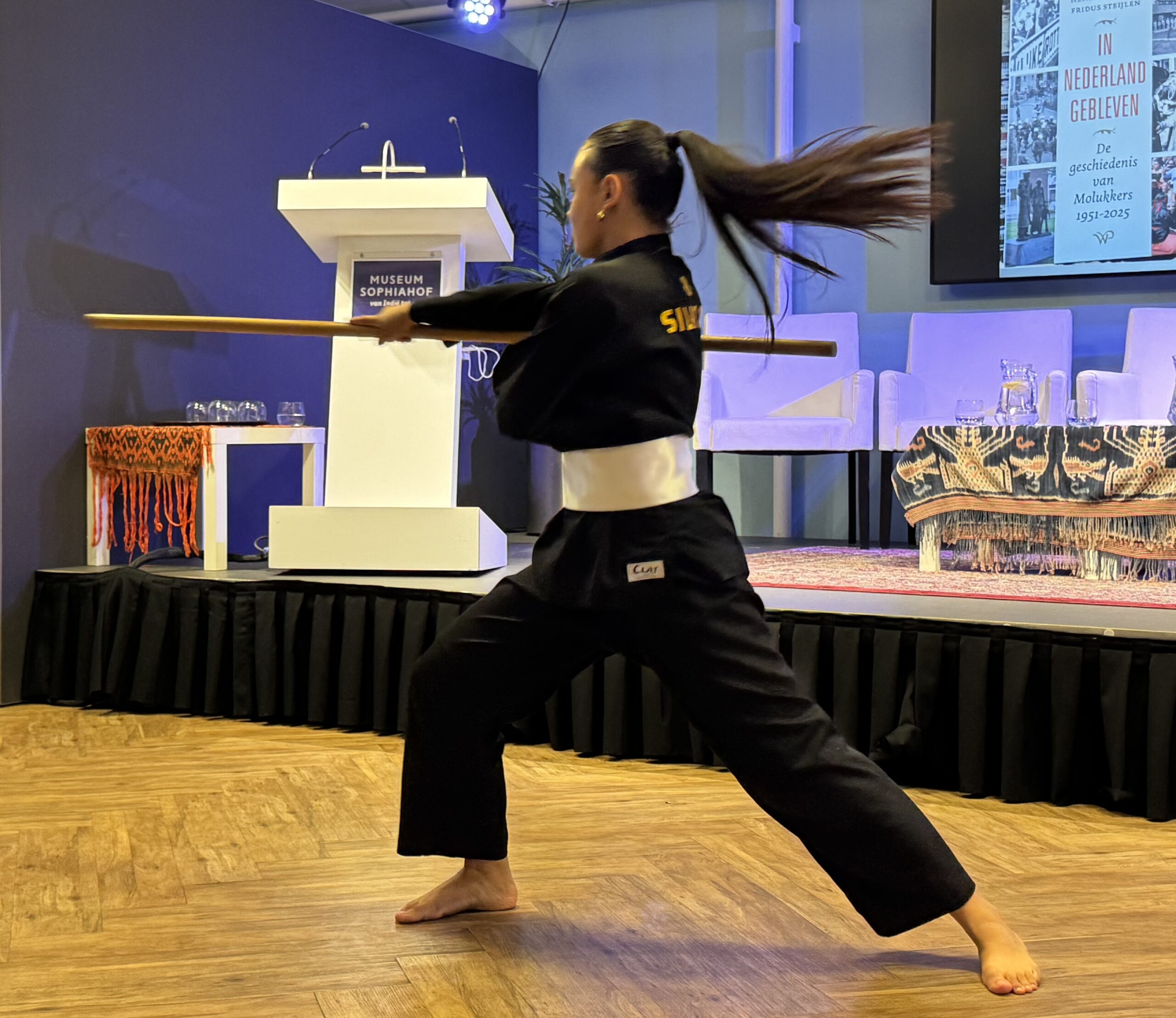On the shoulders of ancestors: Moluccans in the Netherlands
Senay Boztas
The Moluccan military who fought for the Dutch in Indonesia had to fight once more for their rights in the Netherlands – but their third generation is forging a fresh sense of identity, according to a new book.
“They stayed in the Netherlands” – In Nederland gebleven – tells the history of Moluccan immigrants from 1951 until 2025. This group of 12,900 soldiers who served in the Royal Dutch East Indies Army (KNIL) and their families came to the Netherlands in 1951, thinking it would be a temporary evacuation after Indonesia had won independence from the Dutch.
But the Republik Maluku Selatan (RMS), proclaimed in the Moluccas in 1950, did not materialise, and the Dutch government did nothing to make it happen. Instead, they stayed – at first in former wartime camps such as Westerbork, then in housing projects – and were involuntarily discharged from the army and barred from work and voting.
The following decades saw activism for rights and housing alongside efforts to tackle issues like drug dependency, as charted in this 640-page history. The most notorious incident was a 1977 school hostage taking and armed train hijack, which ended in a bloody raid by Dutch special forces.
Resilience
At a launch this month at the Museum Maluku in The Hague, historian Henk Smeets and anthropologist Fridus Steijlen said they hoped the revised reprint of the book first published in 2006 would sort fact from myth and be a source for reflection. “There is a time to pause and think about what happened to them since World War II,” said Smeets. “Recognition and apologies have their place…Their resilience is remarkable.”
Steijlen told Dutch News that the community was relatively slow to integrate because it never intended to stay, while local society allowed it little space when it was organised in “pillars” of faith and politics. But, he said, in a secular, modern environment, its descendants are finding a way. “This third generation does not say: ‘I’m Dutch and proud to be Dutch’” he said. “It says: ‘I am Moluccan, but this is my society and I won’t accept [exclusion] in my society. This is where I live.’”
In the Moluccas, this group is seen as part of the diaspora — keturunan in Indonesian — and Steijlen points out that some people have a place there as well as a home in the Netherlands.
By 2018, around two in five of the community lived in a municipality with a “Moluccan” district of specially reserved housing – a situation that has led to tension when other ethnic groups have been placed there. A 2020 Dutch statistics office (CBS) report suggested that people with a Moluccan surname were more likely than the average native Dutch person to live in a small, rental house, did less well in education and were twice as likely to be suspected by police of a crime.
“Compared to where they were, it is better but their position is typically similar to Dutch people in lower socioeconomic groups,” said Steijlen. “There is not enough differentiation, although some Moluccans are doing very well and have good positions. It’s good to realise they only started to invest in integration 35 years after their arrival.”
Moving away from a story of persecution in the past to a positive sense of the future is vital, in his view. “If you talk about post-colonial trauma with psychologists, they say people can be stuck in a kind of victimhood… and you can be trapped by your interpretation of the past,” he said. “It troubles me when Dutch documentary-makers, writers and politicians put Moluccans in the victim’s corner…and do not show the strength of their community. Because when you show the strength of that community, you also show how the community that received them failed.”
Positivity
At the book launch, young dancers Rania and Farah Siegers gave a performance of the Indonesian martial art silat. Rania recently competed for the Netherlands at a silat world championship in Abu Dhabi and it was a discipline, they said, practised by their great-grandfather in Indonesia.
In two panel discussions, Moluccan-Dutch artists and journalists talked about positive expressions of their cultural identity – from Jaïr Pattipleilohy’s Ulu Kora monument in Ede to an online “clubhouse” established during the Covid pandemic, and the thriving Amsterdam radio station Radio Oras.
Smeets said some 70,000 descendants of these soldiers had benefited from a 1986 agreement with government including cultural funding and jobs schemes, and a new sense of positivity. “In Dutch society, they have a joint sense of ownership,” he said, “a mixture of Moluccan culture and elements of international youth culture.”
Part of these new generations’ definition of identity comes from looking back to the pre-colonial Moluccan arts and culture, according to Henry Timisela, director of Museum Maluku. “We stand on the shoulders of all of the people who were here before,” he said. “I have hope, because there is power there.
“The ball is now with us…We all live on our own islands.”
And, like the waters around the Moluccan archipelago, the sea unites.
Thank you for donating to DutchNews.nl.
We could not provide the Dutch News service, and keep it free of charge, without the generous support of our readers. Your donations allow us to report on issues you tell us matter, and provide you with a summary of the most important Dutch news each day.
Make a donation